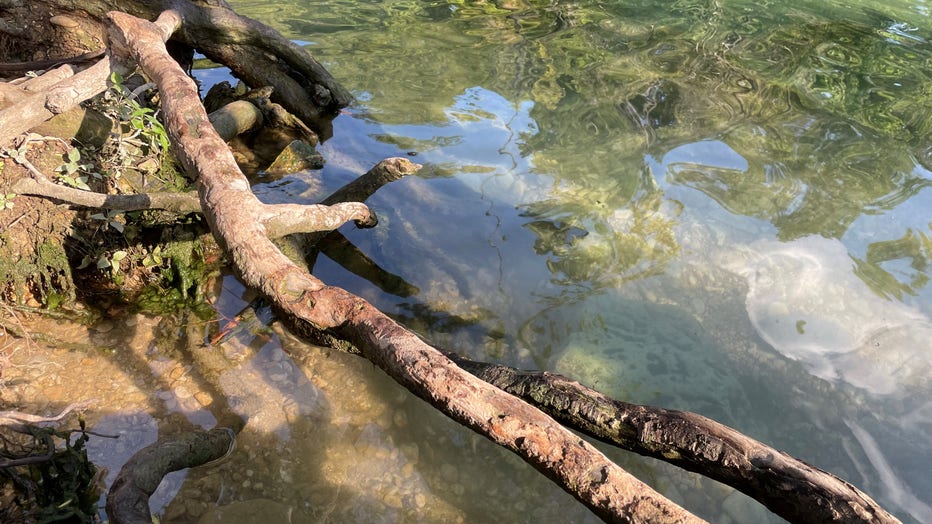Scientists say toxic algae can be deadly for dogs, people
Scientists say toxic algae can be deadly for dogs, people
The city is urging people and pets to not get in the water if it’s warm or stagnant, or if they see any algae. If you do, rinse off after going for a swim.
AUSTIN, Texas - The City of Austin is investigating after a dog died within an hour of swimming at Barking Springs this past weekend. The city said it may have died due to toxic algae.
The news didn’t seem to deter people from bringing their pets to Barking Springs on Wednesday, with dozens swimming around.
"You shouldn't have to wait for your pet to die to find out that water is toxic and it's contaminated," said Lucia Ross, with BlueGreen Water Technologies. "Pets in particular are vulnerable because they're so much smaller and of course, when you throw a ball in the water, they go out and run and play and suck in all types of water, and then they come out and lick their fur, and they're licking that toxin off of their body and ingesting it."
Ross said symptoms will appear quickly in dogs, like vomiting, diarrhea, staggering, and glassy eyes. Toxic algae can be dangerous for people, too.
"When you see that toxic mat and it's bubbling on top, those spores are coming out, and those bubbles that pop, and release those toxins into the air, so you're breathing those spores in," Ross said.
She said it can cause anything from respiratory issues, hives and itching and even death.

The Austin Watershed Protection Department says however that all algae mats produce oxygen bubbles, which release oxygen into the atmosphere when they pop, not spores or toxins.
"Cyanobacteria spores are nontoxic, and they sink down to the bottom. The spores are rarely airborne," says Austin Watershed Protection.
Ross said summer is the peak season for bacteria growth.
"These blooms are lasting longer because of the warming of the water, the land surrounding the water, it's just a perfect set of circumstances that are allowing them to grow and multiply," Ross said.
Paola Mascio said he comes to Barking Springs with his dog at least once a week and never worries about something happening to his furry friend.
"Just be wary of your dog and what it's doing," Mascio said.
City of Austin scientists said they found mats of algae near the rocks at Barking Springs and took samples of it. Earlier this summer, toxins were found in algae samples at Lady Bird Lake and Emma Long Metropolitan Park on Lake Austin.
The city is urging people and pets to not get in the water if it’s warm or stagnant, or if they see any algae. If you do, rinse off after going for a swim.
If you or your pet have sudden, unexplained symptoms after swimming, contact a doctor, vet, or Texas Poison Control Center.
Austin Watershed Protection said they’re treating two areas of Lady Bird Lake. As for the specific sample collected at Barking Springs, FOX 7 Austin hasn’t heard back about the results.

